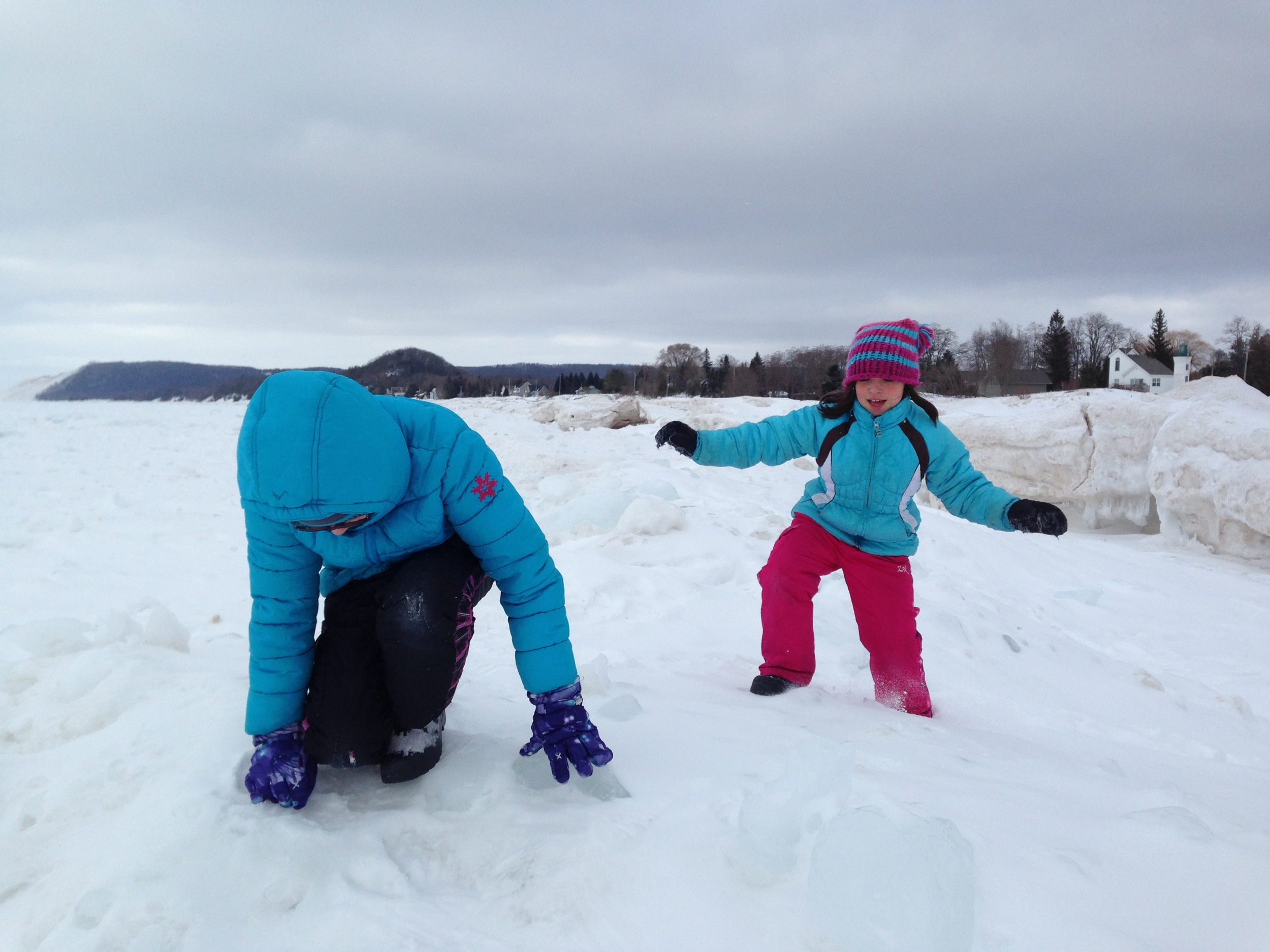How to cross an icy parking lot
joeacast
When we arrived at church last Sunday, we were running a little late, so I dropped my family off at the door and then drove out to park the van. After I found my spot, pulled in and turned the car off, I noticed a family across the lot who had just vacated their car and had begun their walk to the church building. Apparently, the parking lot was a solid sheet of ice. I watched as mom tried to navigate the black ice by shuffling her feet with great caution. Admittedly, I was kind of hoping to see her take a spill (I didn’t want anyone getting hurt...just a funny little flop would have been fantastic!). Her older daughter (maybe mid-teens) was equally cautious and her husband was trying to pretend like he wasn’t bothered (that’s what we men do) but he wasn’t taking any chances with the ice. Their posture on the ice was quite funny to watch, although I began to wonder what someone watching me would think when I finally braved the parking lot.
Before I hopped out, I realized that there were two other family members also in the parking lot -- two young boys. The reason I didn’t notice them at first was because they were not cautiously navigating the ice, they were running, sliding, slipping and frolicking across the ice! They were laughing as they tried to run at full speed, then stop and slide 20-25’ across multiple parking spots. They were carefree and oblivious to the dangers of falling. The joy on their faces, compared to the terror on the faces of their other family members, told a great story. I realized I wanted to cross the parking lot like those boys.
As I stepped out of the van, I continued to watch this family walk across the lot, the street and then climb the stairs that led to the church building. The whole time I could hear the two boys laughing hysterically, challenging each other to bigger/faster slides and the whole time I could see mom hunched over, shuffling, clinging fiercely to her husband’s arm while cautiously avoiding an America’s Funniest Home Video’s face plant.
Later that day I was telling Traci about what I had seen in the parking lot and it hit me hard -- that was a great picture of how people approach their faith in God. Like the mom, too many of us are cautious and timid. We’re afraid that something will go wrong, or even more, that if it does wrong, that somehow God wasn’t a part of it. We’ve bought into the lie that living out our faith means God has to work things out according to our plans, when in fact, faith is trusting that God’s plans are always best. When we live timidly with our faith, we rarely see the growth we desire, nor do we experience the opportunities to use our gifts and talents to bless and encourage others.
The two boys however, give us a vivid picture of what faith in God looks like. They weren’t worried about how things might go wrong, they were thinking about the opportunities right in front of them. They saw the slick parking lot and they thought, “What a great chance to skate and have fun!” instead of, “What a dangerous dilemma, I hope I don’t fall and embarrass myself!”
Don’t get me wrong, faith isn’t an excuse to be careless or flippant. For too many of us, though, fear dictates our actions instead of faith. Faith and fear stand in stark contrast and will determine what you see at any given moment. You can approach the same situation and see opportunity or potential disaster, growth or pain, expectation or disappointment, gain or loss, opportunity for creativity or complete confusion, hope or despair. The same circumstances can reveal radically different perspectives based on whether you approach them with faith or fear.
Hebrews 11:1-2 are pretty familiar verses, so check it out in the Message paraphrase: “The fundamental fact of existence is that this trust in God, this faith, is the firm foundation under everything that makes life worth living. It’s our handle on what we can’t see. The act of faith is what distinguished our ancestors, set them above the crowd.”
I love that! Faith is what “makes life worth living” because it changes our outlook on everything; faith is a total game changer. Then, when the author writes, “The act of faith is what distinguished our ancestors...” we are reminded that faith is active in the life of believers, and is the catalyst that sets us apart from the crowd (most of whom are making choices from fear, not faith). Faith isn’t a passive feeling or a glorified emotion, faith demands action, and that action is a distinguishing characteristic of God’s children.
When I finally stepped out of the van, I ran for 5-10 yards and slid for a good 15’ with a smile of satisfaction. I hope I approach all the icy parking lots in my life with the same enthusiasm as those two boys. Sure, I am certain I will slip and fall, maybe even break something a time or two. But I would rather look foolish trying to live the life of faith, then to look foolish shuffling fearfully across the same ice.
Go ahead and take the plunge, life is always better on the water (even when the water is frozen)!
